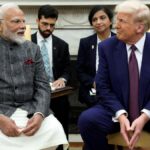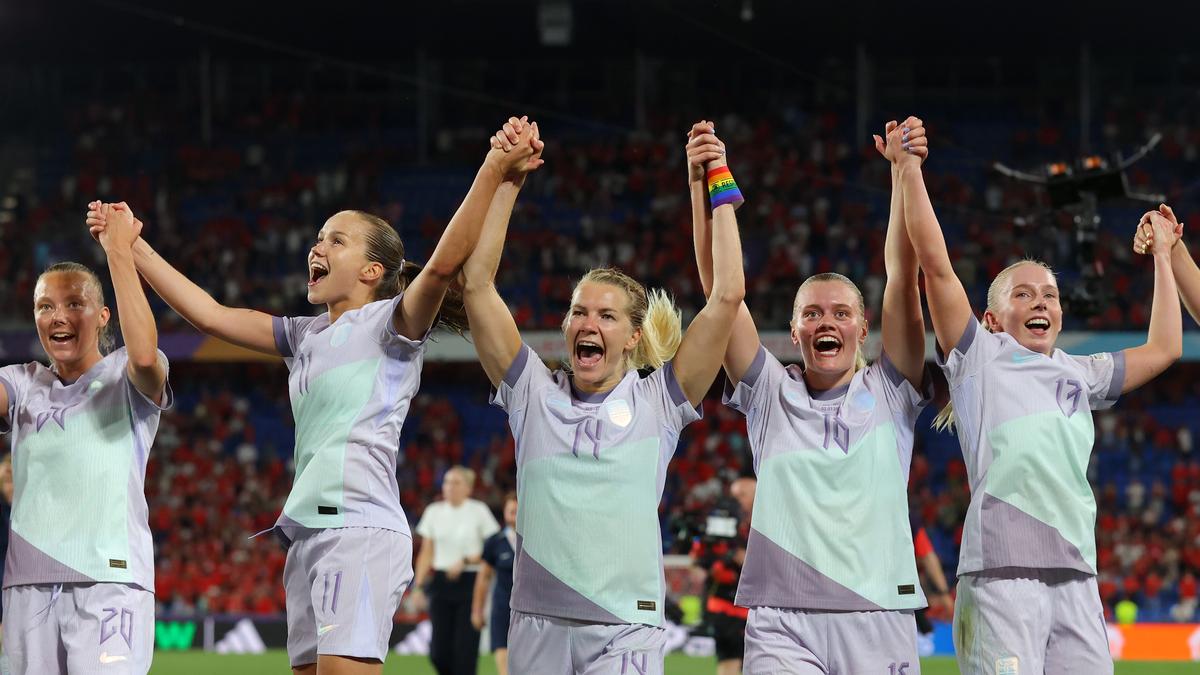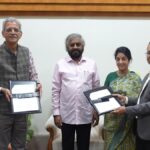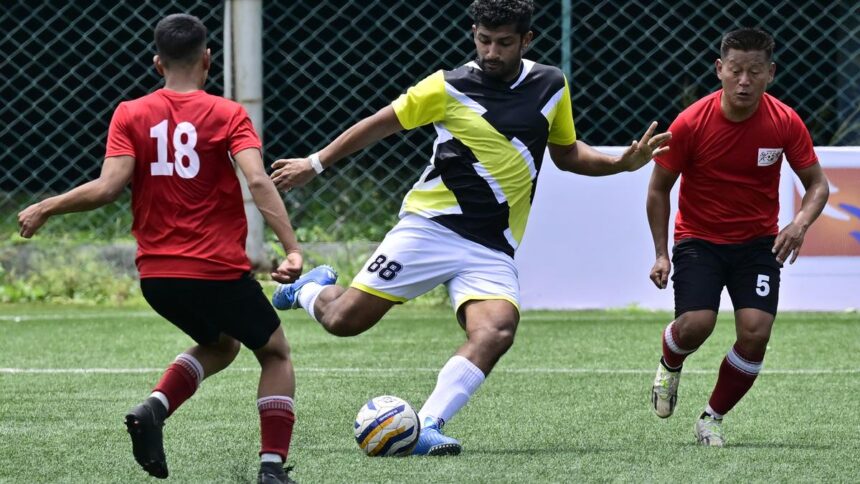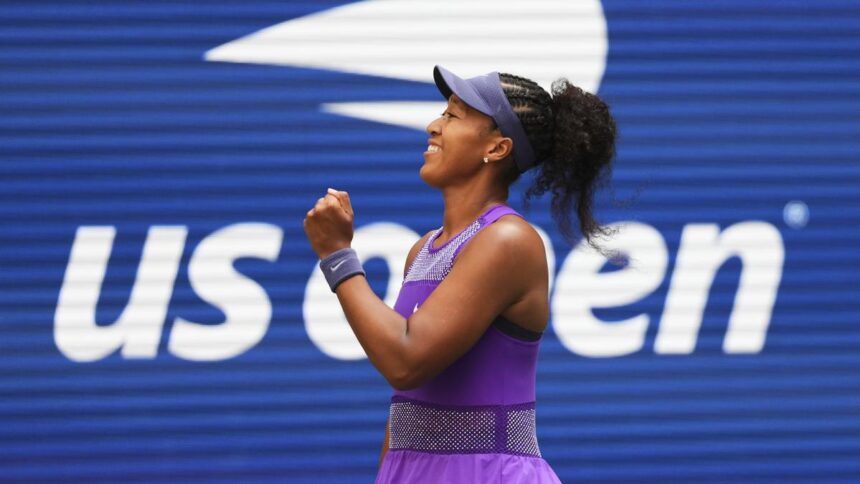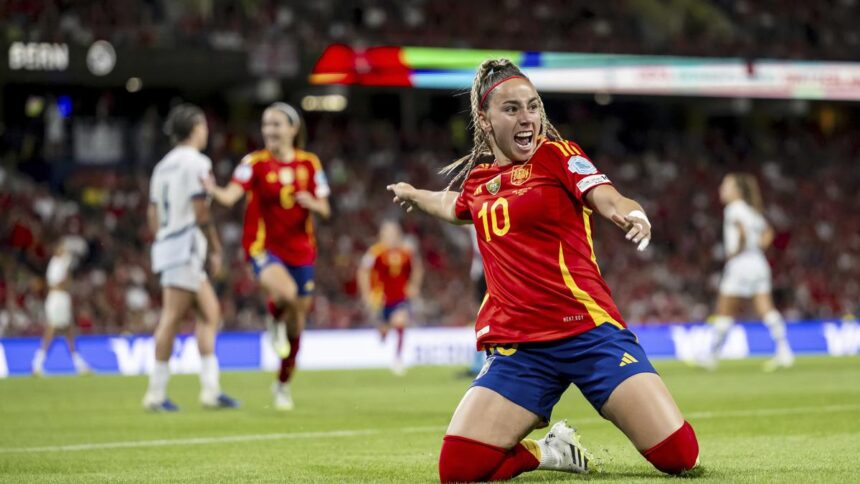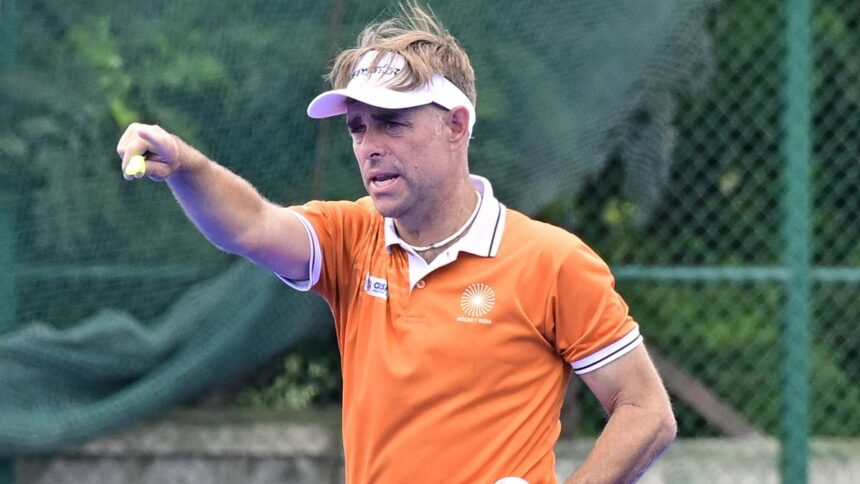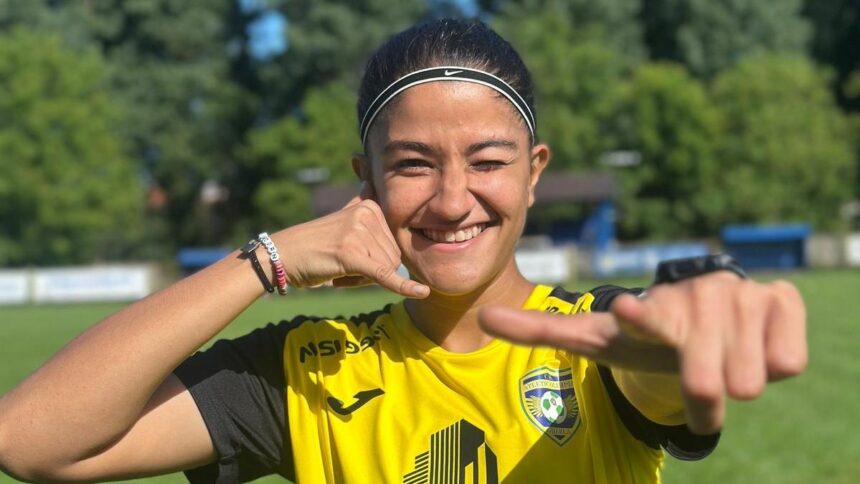Interviews can be tricky, especially when connecting across time zones with a superstar in the middle of a hectic European campaign. A lot of things need to align — the timing of the call, the mood in the camp, the right set of questions framed in the most enticing ways and plenty more — to coax an athlete to give up their understandably cautious persona.
But Ada Hegerberg is no ordinary star. As she sat down for a conversation with The Hindu, she broke the ice in the most unexpected of ways.
“Sorry about the game. It was a tough loss, it went so close. I don’t always watch cricket, but this one was [being shown] all over [here] and it was such a good game!” she quipped.
ALSO READ | Brazil launch Women’s Copa America title defence with 2-0 win over Venezuela
The game? India’s painful defeat to England in the third Test at Lord’s. The Norwegian captain, the first female Ballon d’Or winner and a trailblazer on and off the pitch, knows a thing or two about heartbreak and victories that draw everything out of you.
Ada Hegerberg has won six French league titles, five French Cups and five Champions League titles. She was also the first recipient of the Ballon d’Or Feminin in 2018
She is the all-time leading UWCL scorer with 66 goals for Lyon and also holds the record for most goals in a single UWCL campaign (15 in 2017-18)
The 30-year-old, who has scored 50 goals in 93 appearances for Norway, is hoping to lead her country to the semifinals of the Women’s Euros for the first time since 2009
Coming good on hope
Norway is currently competing in the Women’s European Championship in Switzerland, where it has progressed to the quarterfinals, just like many pundits foresaw. The weight of expectations, however, has not been easy to bear.
“We’ve always been trying to lower the expectations a bit sometimes because I feel like the expectations for the team are almost sky high. It’s been a lot of stress, there’s a lot of pressure to win those games,” she pointed out.
Despite that, Norway ended with a flawless group stage record, something that Hegerberg was keen to highlight.
“No game is easy, trust me. We have to fight for every scrap. We’re a small country, like 5.5 million [in population]. We’re not supposed to be in the quarterfinals, if you know what I mean. But we still are and I think it shows character; we turned difficult situations into positive results. Nine out of nine points is not too bad,” she said.
With wins against Switzerland and Finland, Norway became the first country to make it to the last eight. This prompted coach Gemma Grainger to make as many as six changes in the final group stage game against the already eliminated Iceland.
Despite earning the right to experiment and perhaps not succeed, Norway fought valiantly to come through with a 4-3 win, thanks to braces from Signe Gaupset and Frida Maanum, the former even assisting both of the latter’s goals.
ALSO READ | Cristiano Ronaldo prioritising a record 6th World Cup over the Club World Cup
While the result did not matter in the grand scheme of things, Hegerberg stressed why it was an important game for her squad.
“We were in a position where we could relax, put our shoulders down and have some fun. We have got players who stepped up for the first time on the European scene, scoring their first goals. It was only a positive going into that game [against Iceland] and it’s always a plus when we managed to win them as well. It was very important for the team morale.”
Staying focused
Next up in Norway’s path is a strong Italian side that is gunning for a spot in the semifinals for the first time since 1997. They incidentally met twice in last year’s European Qualifiers, with both games ending in a draw.
While the Grasshoppers have a strong record against Le Azzurre in the recent past, Hegerberg is paying no heed to numbers heading into this contest.
“Tournaments tend to play their own lives. You can have all the resources you want outside the tournaments. But tournament football is tough. And Italy is a good team, one we have a lot of respect for. They have experienced players and they have a good, stable team with good results lately as well. We respect them, but we also know that we’re in a good position to do well and we have to give it all.”
“We are very relaxed, but at the same time, we feel like we have that little step left in us to have a good game against Italy because we also want to go to the semifinals.”
Such has been Hegerberg and Norway’s focus on the task at hand that she seemingly lost track of every other thing, including important personal events and milestones.
“You’re going to laugh at this, but you’re stuck in a bubble when you are here in a tournament. Here’s a funny story. I spoke with my husband twice on his birthday without wishing him. That says a lot about the focus we have when we are down here.
“So I called him back for a third time on his birthday and said, ‘Jesus Christ, forgive me! I’m so sorry.’ So, I didn’t win the Wife of the Year [award] with that one, I am not going to lie. He is the best. He, obviously, just laughed. I was not happy with myself at all.”
Amidst all the hustle and bustle, the Molde native recently celebrated her 30th birthday, which allowed her and her teammates to let their hair down and turn their focus away from football, however briefly.
“It was a good day. My husband called me in the morning to wish me a happy birthday. So at least he remembered my birthday! The girls gave me a great day, we won our third game in the group stage that day, I got cake, I got some proper champagne to celebrate when we came back to the hotel. It was absolutely brilliant.”
ALSO READ | Long camps, young blood, and tactical clarity: How India’s women qualified for AFC Asian Cup 2026
Call for action
Major tournaments in the women’s game – be it the Euro or the World Cup – throws the spotlight on the vertical’s infamous ‘ACL club.’ This is a growing pool of footballers who lose months of playing time to serious Anterior Cruciate Ligament tears.
Hegerberg is one of the most high-profile members in that pool, having spent more than 20 months on the sidelines due to an ACL rupture in January 2020 and a stress fracture in her left tibia in September that year.
Five years on, she is quick to acknowledge the privileged position she was in during her rehabilitation.
“I had to dig deep in order to get help. But I was also lucky because I’ve had the resources around me to find that help, not every player is.”
Women’s football has been playing catch-up to its male counterpart in almost all spheres, including injuries, sports science and recovery. Hegerberg believes that getting to the bottom of those key issues is well past due.
“I think there are still a lot of codes to crack when it comes to a woman’s body (in this sport). I ask myself these questions often: Do women players get access to the competence they deserve? Is there actually research that is put in motion? Is the sport professional enough to take good care of the player’s recovery? Because the amounts are going up for the players, let’s be honest. There are more games, more pressure and more interest in the sport, which increases the pressure on the players.
“That’s a topic that needs to be talked about more often. It needs to be studied because you can manage to avoid those big injuries for all those players. The truth is that every big player is going through a period of injury like that. It’s just a question of when. That said, could you avoid it? Could you shorten down that injury period? I think that can benefit the sport in a very big manner and it would only help the next generation to perform on an even higher level than we are at the moment.”
ALSO READ | Chelsea’s Cole Palmer surprised to share Club World Cup podium spotlight with U.S. President Donald Trump
Advocacy in her blood
In club football, Hegerberg’s success with OL Lyonnes is legendary. The honours roll includes multiple titles: from the French league and Coupe de France to the UEFA Women’s Champions League.
For all her brilliance on the field, she is just as (if not more) unapologetic about using her platform off it. Case in point: when she protested against gender inequality at the Norwegian Football Federation and quit the national team in the summer of 2017.
“I always salute players speaking up on behalf of their sports because it takes a toll on you. It’s a hard position to be in. It’s a very big privilege to be able to be a spokesperson for your sport,” she said.
The business of football, or any sport for that matter, is the rabid pursuit of numbers. For Hegerberg, it has also been a pursuit of memories and, in the process, building an almost unmatched legacy. She inspires visions and delusions. She pushes you to dream, and dream big. She performs, not just for glory but also to make life better for the generations to come.
“We always have to stay on our toes and be sure that the sport is moving in the right direction. That’s why you need players to perform, so that we have a voice. If you don’t perform, we won’t have that voice to make an impact. We need help. It’s not always on the players to speak up. Federations, UEFA, FIFA, clubs, everyone has a responsibility in terms of taking the sport in the right direction. We have to fight for it. The battle of developing the sport and getting the best rights for women is always going to be rolling.”
Sport rarely makes sense. Hegerberg? She’s loud and clear. Always has been and always will be.
The interview was facilitated by Fancode



